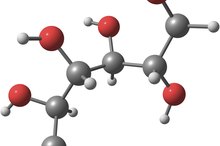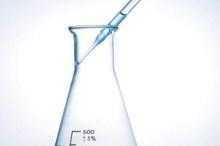What does fact checked mean?
At Healthfully, we strive to deliver objective content that is accurate and up-to-date. Our team periodically reviews articles in order to ensure content quality. The sources cited below consist of evidence from peer-reviewed journals, prominent medical organizations, academic associations, and government data.
The information contained on this site is for informational purposes only, and should not be used as a substitute for the advice of a professional health care provider. Please check with the appropriate physician regarding health questions and concerns. Although we strive to deliver accurate and up-to-date information, no guarantee to that effect is made.
How Is Hydrogen Used in the Body?
Introduction
According to the Los Alamos National Labs, hydrogen is the most abundant element in the universe 1. In fact, hydrogen makes up an estimated 90 percent of all atoms. In most cases, when you hear about hydrogen, it is usually in the context of outer space, military weapons or fuel sources for cars. However hydrogen is also a crucial element in the operation of the human body.
- According to the Los Alamos National Labs, hydrogen is the most abundant element in the universe 1.
- In most cases, when you hear about hydrogen, it is usually in the context of outer space, military weapons or fuel sources for cars.
Water
One of the major ways that hydrogen is used in the body is in water. Water is made up of two-thirds hydrogen atoms. According to the Mayo Clinic, water is so important that it makes up over 60 percent of your body 2.
Energy
The Major Importance of Hydrogen in Living Organisms
Learn More
Hydrogen also plays a crucial role in energy production in the body. For our bodies to function, they must have energy in the form of adenosine triphosphate (ATP). Your body gains energy through consuming foods rich in substances such as carbohydrates. Once ingested, the body uses enzymes to break down your food into more basic substances such as glucose. These basic parts are then further broken down through glycolysis and beta oxidation, leaving your body with acetyl CoA. Acetyl CoA is then broken down into hydrogen, oxygen and carbon. The hydrogen ions are transported to the mitochondria of the cells, which then uses the hydrogen to create ATP.
- Hydrogen also plays a crucial role in energy production in the body.
- Once ingested, the body uses enzymes to break down your food into more basic substances such as glucose.
Aging
According to Dr. Patrick Flanagan, hydrogen may also be the missing link in slowing down the aging process. The aging of tissues in the body is believed to be caused by substances called free radicals in the body. Inside many of the tissues in the body are stored (pooled) supplies of hydrogen. According to Dr. Flanagan, this hydrogen protects us from free radical damage. Unfortunately, as we age, these storages dry up. This leaves the tissue exposed to free radicals, which leads to the tissue damage seen with aging.
- According to Dr. Patrick Flanagan, hydrogen may also be the missing link in slowing down the aging process.
- Inside many of the tissues in the body are stored (pooled) supplies of hydrogen.
Related Articles
References
Writer Bio
Chris Sherwood is a professional journalist who after years in the health administration field and writing health and wellness articles turned towards organic sustainable gardening and food education. He now owns and operates an organic-method small farm focusing his research and writing on both organic gardening methods and hydroponics.









